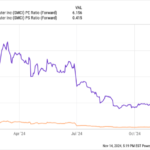With COP28 in Dubai over and financial pledges well short of the necessary targets, trillions are still needed annually between now and 2030 if we have any hope of mitigating and adapting to climate change. To bridge this gap, private finance has emerged as a critical funding source. Case in point, a recent Standard Chartered report on sustainable banking in 2022 suggested that retail investors alone have some $10 trillion in investable wealth ready to be directed at sustainability investments.
The challenge so far has been providing such investment opportunities beyond basic environmental, social and governance (ESG) exchange-traded funds (ETFs)—which can be difficult to link to actual impact on the ground. This is a primary reason why asset tokenization is poised to have a big year in 2024. It can rapidly expand offerings for retail investors in ways that traditional finance can’t.
The catch is that tokenized sustainability investments needed to be issued by licensed companies in jurisdictions with sound regulatory frameworks. Any other approach will only limit the potential of tokenization to help bring trillions of dollars in private finance to the fight against climate change.
Challenges in Sustainable Investing
Despite the fact that a recent survey by McKinsey Sustainability revealed that 40% of US consumers are interested in participating in a climate-linked financial product, few such products exist that draw a direct line between dollars invested and impact on the ground. The typical offering is an ESG ETF that provides exposure to companies with strong ESG policies and performance. For many, this hardly constitutes an investment in sustainability, especially considering people can invest in these companies via non-ESG instruments.
Sustainability investing is also a complex issue. It can be challenging to differentiate between the instruments that are currently available or know how to accurately assess the risks involved. There’s also the issue of greenwashing and how to determine whether a company’s claims are scientifically accurate. The voluntary carbon markets, for example, have been maligned over questions of credit quality and actual vs. estimated impact, which has led to a decline in trust. What this means is that even if impactful sustainability investments are made available, there would still be trust issues to overcome.
The Potential of Asset Tokenization
Asset tokenization refers to putting an asset like equity, bonds, and carbon credits on a blockchain so that they can be more easily fractionalized, leveraged, and exchanged. It’s seen by many as the next big thing in the Web3 space and represents the possibility of access to investments that weren’t previously available to retail investors—things like fractionalized real estate, art, private debt, and private equity.
From the perspective of sustainability investments, asset tokenization provides the direct link between investment and impact that investors want. Instead of investing in for-profit companies via an ESG ETF, retail investors can allocate their funds directly to reforestation projects, climate startups, micro-lending products, and green bonds. And being so close to projects means updates will come more frequently and in the form of social media posts and other rich media, as opposed to bland annual reports. And with all transactions conducted on blockchain, there is an element of transparency that isn’t typically present with more traditional investments.
We need to understand, however, that the proliferation of tokenized sustainability investments can only happen within jurisdictions with coherent virtual asset regulatory frameworks, where trust, and accountability are key pillars of the overall investment landscape.
The Importance of Regulation
One of the primary challenges faced by the blockchain/cryptocurrency industry over the years has been negative public perception. There have been too many scams, too many deified crypto bros, and too much avoidance of regulation for the general public to believe in the benefits of the tools and how they might relate to climate impact. What this has ultimately resulted in is an absence of trust in virtual assets, regardless of their origin or intention. Education is often cited as a solution to the trust issue, but I would argue that education isn’t going to be very effective in the absence of regulation.
Instead, a commitment to regulation—from both the regulators and companies—is the first step towards rebuilding trust. It fosters the accountability, support services like analysts and ratings agencies, and accessibility via fintech investing apps needed for tokenized sustainability investments to be accepted by retail investors. Regulation also establishes disclosure requirements and lays the groundwork for a much healthier information landscape than the one we see today. We won’t have any of this if companies
The Imperative of Regulatory Compliance in Climate Investing
Seeking Regulatory Approval: A Vital Step
It is common knowledge that regulatory approval is a key stepping-stone for any credible financial enterprise. Regulatory frameworks in international finance hubs such as Dubai, Hong Kong, and Singapore provide the necessary foundation for trust, transparency, and legitimacy. After all, who would want to invest in assets that are not fully regulated?
For Enjinstarter and AYA Foundation, the impetus for seeking regulatory compliance is not simply a legal requirement. Rather, it is a foundational principle for building investor confidence and driving sustainable climate impact.
The Significance of Asset Tokenization for Sustainability
Asset tokenization opens new gateways for sustainability investing. However, without proper regulatory oversight, these opportunities can morph into uncharted, untrustworthy territory, thereby detracting from their potential impact.
In the eyes of investors, trust and transparency are key. Only by operating within established regulatory frameworks can companies ensure the credibility of their investment instruments, ultimately directing trillions of dollars toward meaningful climate impact.





